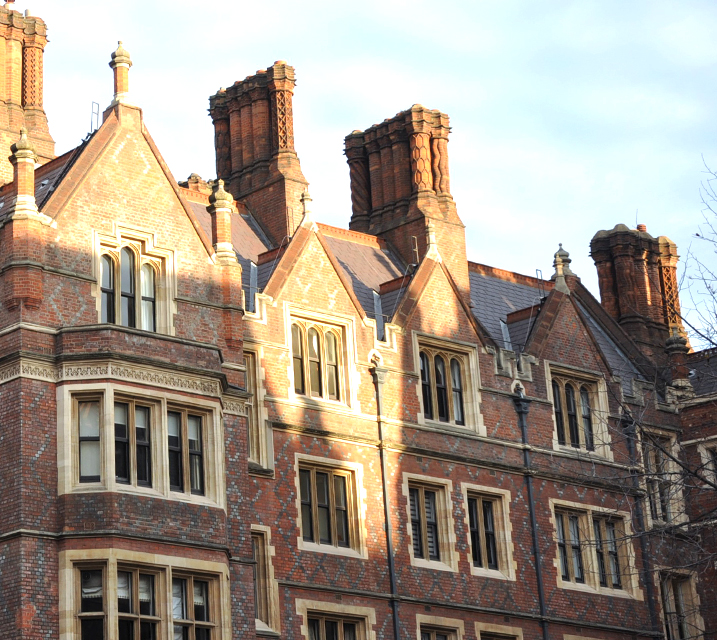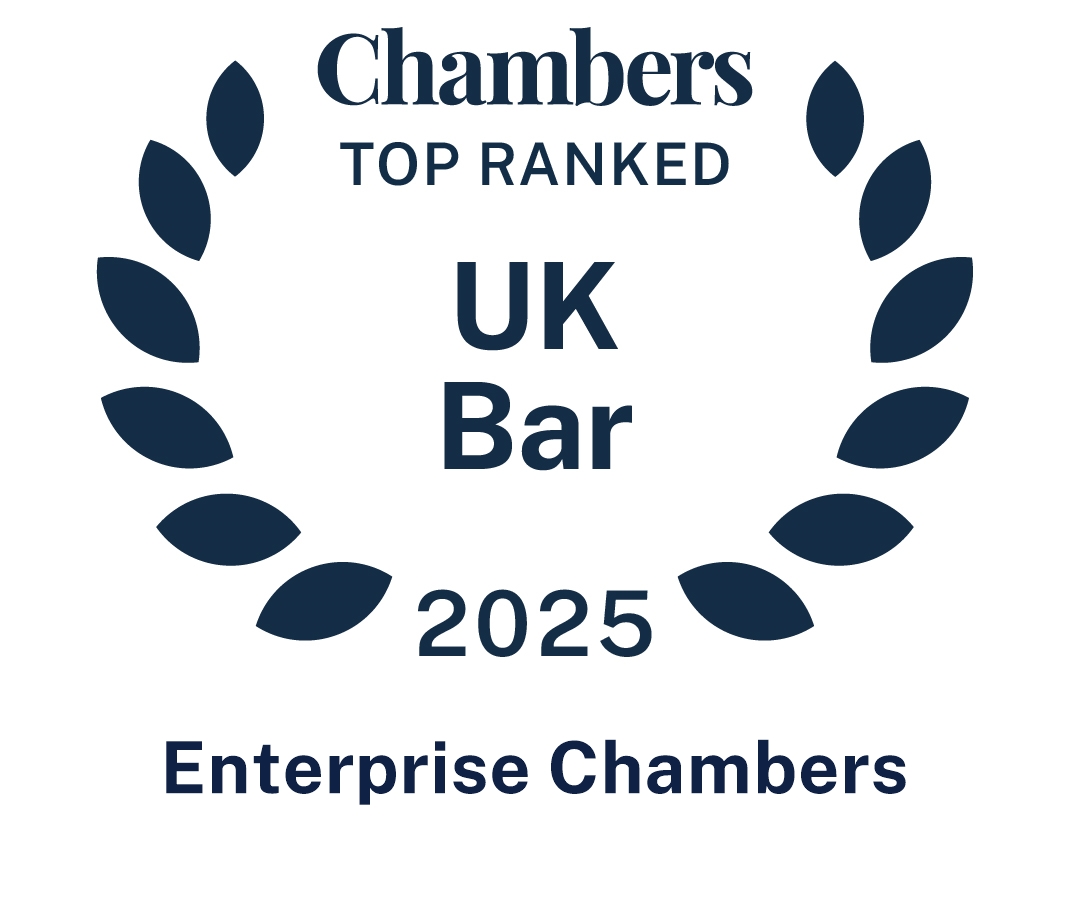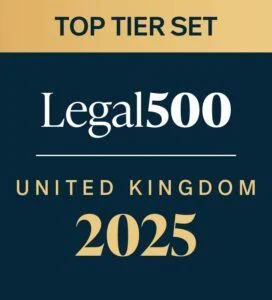Hotel Portfolio II UK Limited (In Liquidation) & Anor v Andrew Ruhan & Anthony Stevens [2022]
James Pickering QC and Samuel Hodge have secured an emphatic victory for the Claimants in a long-running, high value fraud claim in the High Court. On 23 February 2022, Mr Justice Foxton handed down judgment in the case of Hotel Portfolio II UK Limited (In Liquidation) & Anor v Andrew Ruhan & Anthony Stevens [2022] EWHC 383 (Comm). The case was heard over 12 days in the Commercial Court. James and Samuel were instructed by Spring Law Limited and Elizabeth (Libby) Aird-Brown (as liquidator of the First Claimant) of The MacDonald Partnership Ltd.
This is a significant judgment with implications for claimants seeking to establish that individuals and/or companies are acting as secret nominees for defaulting trustees/directors. It also provides important clarification regarding the remedies open to beneficiaries in cases of breach of fiduciary duty and dishonest assistance where secret profits are made as a result of a misuse of trust property. The case also serves as a reminder of the great utility of liquidators’ powers under s.236 Insolvency Act 1986 to obtain information from third parties. A number of useful documents were obtained pursuant to s.236 from a major bank which Ruhan had used (Investec) which provided an extremely revealing insight into the bank’s perception of the relationship between Ruhan and Stevens. Such documents only ever came to light through the use of the liquidator’s investigative powers under that section.
The Claimants successfully proved a complex fraud perpetrated by the Defendants which began in December 2004 and early 2005, by establishing that Andrew Ruhan, a director of the First Claimant (“HPII”), used Anthony Stevens and companies ostensibly associated with him (known as “the Cambulo Group”) to act as his secret nominees and to masquerade as independent purchasers of three large hotels owned by HPII, located near Hyde Park in London (“the Hyde Park Hotels”). The Claimants also overcame the Defendants’ defences based on limitation (by relying on ss.21 and 32 of the Limitation Act 1980), and based on the equitable doctrine of laches.
In 2004-2005, the Hyde Park Hotels were owned by the First Claimant, and had been earmarked as assets with exceptional potential for redevelopment into luxury residences, and which could generate huge profits from onward sales once planning permission was obtained. The Claimants proved that Ruhan fraudulently breached his fiduciary duties as a director of HPII (and breached his duties under ss.317 and 320 Companies Act 1985) and deceived HPII’s board and shareholders when declaring that he had no interest in the purchasing companies within the Cambulo Group, which companies were presented to HPII as being ultimately beneficially owned by Stevens. The Claimants achieved this by establishing at trial that Ruhan used Stevens and the relevant Cambulo Group companies as his secret nominees throughout this time (and at various times thereafter – until at least April 2016). That nominee allegation was denied by the Defendants in the strongest possible terms, and the Claimants’ claim has been defended vigorously since it was issued in 2018. The Judge also concluded that Stevens dishonestly assisted Ruhan in his breaches of duty against HPII.
Once Ruhan had secretly acquired the Hyde Park Hotels, the Cambulo Group sold one of the Hyde Park Hotels (the Lancaster Gate Hotel) to a third party in 2006, generating a profit for Ruhan of c.£7.75m. The Cambulo Group also separately entered into a joint venture with a company owned by the Candy brothers. On 25 March 2008, the remaining two Hyde Park Hotels (the Kensington Park Hotel, and the Kensington Palace Hotel (“the Kensington Hotels”)) were sold by one of the joint venture companies to De Vere Estates Ltd, a company owned by Abu Dhabi royal interests, for £320m. This generated a profit for Ruhan of c.£94.5m. Those profits were then used to invest in, or repay loans secured on various of, Ruhan’s projects (primarily based in Qatar – in particular, a development of certain luxury towers in the Pearl in Doha). The Defendants contended that the use of the Kensington Hotel profits in this manner was explicable as arms-length loans made to Ruhan by Stevens, but this explanation was shown to be false.
The Claimants also showed that, from November 2012 onwards, Ruhan continued to use Stevens (and other companies apparently connected with Stevens) as nominees, in particular in relation to sums originating from a payment of £92m on 15 November 2012. That payment was made under a purported full and final “Termination and Settlement Agreement” (“the TSA”) between Ruhan’s lawyers and companies, and Stevens, which was designed to give the impression that Stevens was agreeing to settle loans he had purportedly made to Ruhan’s entities with the use of the Kensington Hotel proceeds in Spring 2008. The £92m came from sums which Ruhan had made from the sale of his data warehousing business, Sentrum, on 26 June 2012, to Digital Stout Holdings LLC (generating a surplus of some £220m). It was proven that certain subsequent investments made with the use of the £92m, purportedly made by Stevens – for example, in investments of tens of millions of pounds in entities associated with the Lotus Formula 1 team, and in a major property development in New York (the Steinway building on 111 West 57th Street) – were in fact made on Ruhan’s behalf.
From 2012-2016, Ruhan was heavily embroiled in intense litigation with associates of the notorious fraudster, Dr Gerald Smith, who were claiming that Ruhan owed them a 40% cut of the profits that had ultimately been made out of the Hyde Park Hotels due to an alleged secret handshake agreement they claimed had been struck with Ruhan back in 2003 when Ruhan first acquired various assets (including HPII, which owned the Hyde Park Hotels) from the Orb group (“the Orb Proceedings”). Smith and his associates also alleged that the profits could be traced to a Manx trust structure called the Arena Settlement. Ruhan denied that the secret handshake agreement ever took place, and denied that he had any beneficial interest in the assets within the Arena Settlement (which, on the face of things, was beneficially owned by two of Ruhan’s trusted lawyers, Simon Cooper and Simon McNally). In 2013-2014, Smith was able to “convince” Cooper and McNally to hand over the entirety of the Arena Settlement assets, without Ruhan’s knowledge or consent, to associates of Smith in return for certain benefits. In separate proceedings also involving HPII ([2021] EWHC 1272 (Comm)), Foxton J held that this transfer, known as the “Isle of Man Settlement”, amounted to a fraudulent breach of trust by Cooper and McNally against Ruhan. Upon finding out about the Isle of Man Settlement, Ruhan changed his defence and counterclaimed for the return of the misappropriated assets. In 2016, the Orb Proceedings were settled by Ruhan and Smith in Geneva, through an effective carve up of the amounts Smith had seized (“the Geneva Settlement”). In simplified terms, the Geneva Settlement amounted to an agreement that both sides would walk away from the Orb Proceedings, with Smith’s associates effectively being able to keep certain assets, in return for a transfer back of certain other assets by Smith’s associates. Importantly, the transfers to be made by Smith’s associates were not to be made to Ruhan personally (or to entities ostensibly owned by him), but were to be made to companies associated with Stevens. HPII again alleged in the present proceedings that Stevens was involved at Geneva merely as a nominee for Ruhan, so as to disguise the transfer of assets back to Ruhan (noting in particular that Ruhan was in the process of entering financial remedy proceedings with his former wife).
Samuel Hodge was praised by the Judge, at [170] of the Judgment, for his “very effective” cross-examination of Stevens on a point relating to this period. Stevens had attempted to explain that he was entitled to receive assets worth in excess of £73.75m at Geneva – notwithstanding the TSA he had signed in 2012 fully settling his position – because he claimed that in early 2015 he discovered that Ruhan had misled him, prior to November 2012, about the extent of recoveries Ruhan had made from the Qatar investments (on which Stevens had allegedly previously funded him). Stevens claimed this amounted to a fraud against him, entitling him to effectively set aside the TSA and to claim the full amount he was purportedly owed by Ruhan on “loans” made to him prior to the TSA. After discussing Stevens’ cross-examination, and noting other documents from this period, Mr Justice Foxton concluded at [188] that Stevens’ story about his “discovering” this alleged fraud was untrue.
The Judge held that HPII was entitled to an account of profits against Ruhan for all profits he had secretly made out of the on-sales of the Hyde Park Hotels. Quantification of the precise amount recoverable shall follow at the consequentials stage, however, given the amount of profits made on the sales of the Hyde Park Hotels (noted above), the Claimants will be seeking judgment for well in excess of £100m. Given the seriously dishonest nature of the fraud, the Judge declined to give Ruhan any form of relief or equitable allowance. The Judge also held that HPII was entitled to elect for equitable compensation against Ruhan, despite it not advancing a case that it would have developed the Hyde Park Hotels for itself, or any case that the Hyde Park Hotels were sold to the Cambulo Group at an undervalue. This was because, following the sale by HPII to the Cambulo Group, Ruhan was a custodial constructive trustee of the Hyde Park Hotels (of the “first type”) and had a duty to account for the secretly-made profits to HPII (as the profits were HPII’s traceable trust property), but he failed to do so. Accordingly, value of the trust property which Ruhan received from the sale of the Hyde Park Hotels and which he paid away to his own ends could form the basis of a claim by HPII for equitable compensation. Importantly, the Judge also held that the remedy of equitable compensation was open to HPII against Stevens, because Stevens had dishonestly assisted in Ruhan’s breach of duty in that regard. HPII was also held to be entitled to (alternatively) elect to receive an account of any profits Stevens personally made, i.e. of commissions he had made or other benefits received for providing his services as a secret nominee to Ruhan.
In relation to limitation, the Claimants successfully argued that s.21(1)(a) and (b) of the Limitation Act 1980 applied against Ruhan because the claims were in respect of fraudulent breaches of trust and/or because the claim was to recover from the trustee trust property which had been previously received by him and converted to his use. Accordingly, no period of limitation applied. The Judge confirmed that an account of profits, as well as equitable compensation, could be obtained from Ruhan in a case such as the present, under both s.21(1)(a) and (b).
The Claimants also relied on s.32 of the Limitation Act 1980, and the Court held that that (a) the claims were based on the fraud of the Defendants, and (b) facts relevant to the Claimants’ action had been deliberately concealed by the Defendants. However, the Defendants vigorously contended that, if HPII’s former liquidator had been acting with reasonable diligence, he ought to have investigated Ruhan and could have discovered the fraud and/or the deliberately concealed facts at a time that would have rendered the claims time barred. The key issue on this front was whether or not there was a “trigger” for an investigation in around Spring 2008, when HPII’s former liquidator received a set of files from the SFO containing information relevant to Smith’s confiscation order proceedings. One letter from Smith’s solicitors to the SFO from late November 2007 made an allegation that Ruhan had retained a profit share interest in the Hyde Park Hotels. The Claimants succeeded in arguing that reasonable diligence did not require any sort of investigation by HPII’s former liquidator upon seeing this single letter, not least given the tainted source of the thin allegations made in that letter (being Smith, a twice convicted fraudster, whose fraudulent activities the former liquidator had knowledge of), the self-serving nature of the allegations, and the fact that the SFO had appeared not to have given Smith’s allegations any credence at all.
Ruhan’s separate laches defence failed because he could not establish that he detrimentally relied on a lack of claim being brought by HPII until 2018 (especially since he: had deliberately concealed the facts; had taken steps in an interview in November 2014 to mislead HPII’s former liquidator about his interest in the Cambulo Group; and had no reason to think a claim would not be possible if the facts were discovered). Nor could Ruhan establish that he had suffered any prejudice of a type which would have rendered it inequitable for HPII to obtain the relief it sought.


